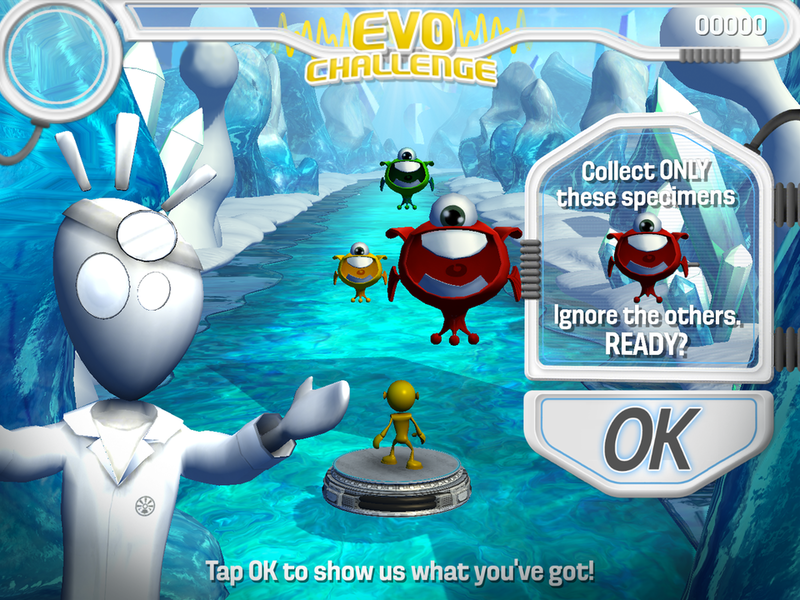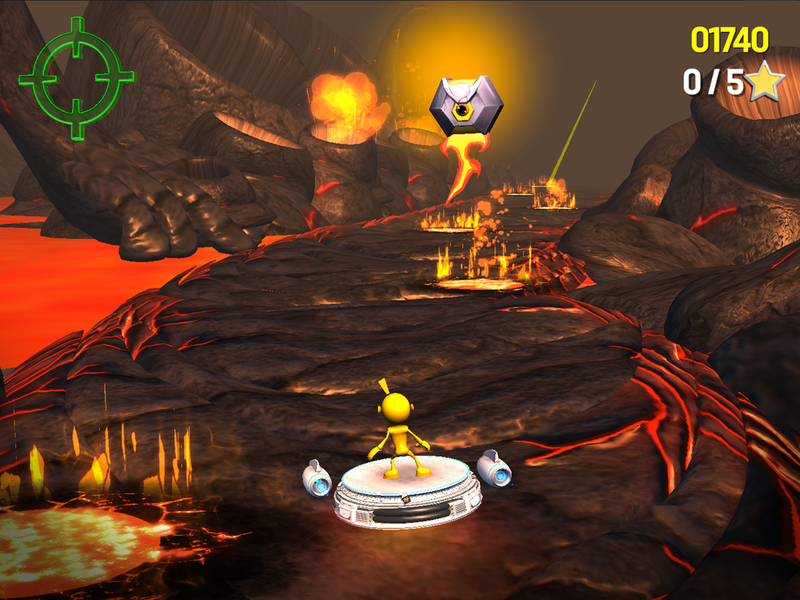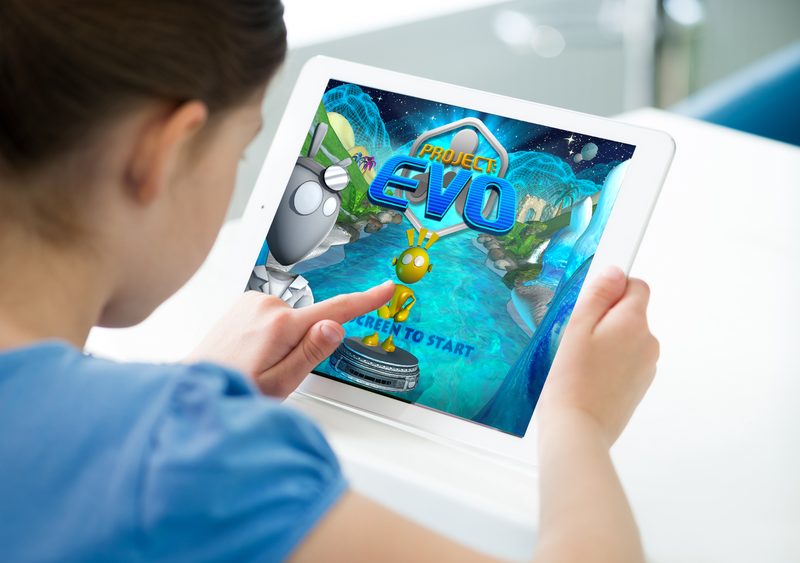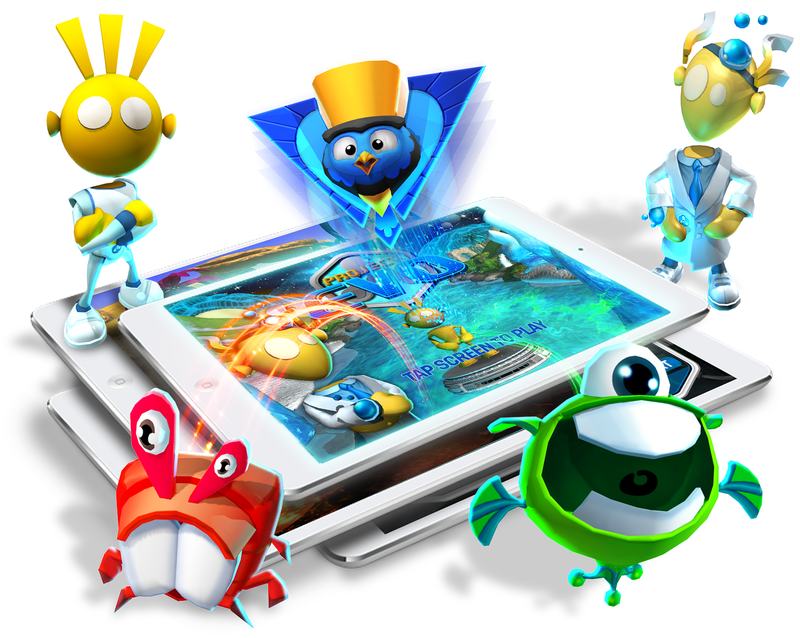Q&A: Technology
Ready player one: booting up the prescription video game
Akili Interactive is developing a range of ‘prescription video games’ that combine specialised algorithms with cutting-edge gaming tech to improve cognitive function in various patient groups with neurological disorders. How exactly does this form of digital therapy work, and what is the potential for engaging game experiences to deliver cognitive benefits? Chris Lo reports.

All images courtesy of Akili Interactive
W
hen it comes to child development, video games have long been targeted as a leading part of the problem. In the public consciousness at least, the trope is common – isn’t all that screen time rotting our children’s brains, and wouldn’t it be better if they spent more time outside, like countless generations before them?
Meanwhile, numerous academic studies have found that playing games imparts significant cognitive benefits to both children and adults. While moderation is an important concept in gaming, as researchers’ construct an understanding of video games’ cognitive advantage, it’s unsurprising that some in the med tech community are starting to see video games as a potential part of the solution, rather than part of the problem.
A prominent example of this belief is Akili Interactive, a Boston-based company that is developing the world’s first generation of ‘prescription video games’. The company currently has an application pending with the US Food and Drug Administration (FDA) for its lead candidate, AKL-T01, a digital therapy delivered through a tablet-based game, which is designed to improve function in the brain’s prefrontal cortex by having the user multi-task through increasingly complex activities.
AKL-T01 is being reviewed as a treatment for children with attention deficit hyperactivity disorder, with a decision from the FDA expected by the end of 2019. And waiting in the wings are a range of other programmes aiming to use games to address cognitive impairments in different treatment groups, including autism spectrum disorder, major depressive disorder and multiple sclerosis. Akili has partnered with Japanese pharma firm Shionogi to manage distribution of the platform in Asia, and is exploring opportunities to bring its products to other markets around the world.
Here, Akili Interactive CEO Dr Eddie Martucci, who founded the company in 2011, discusses digital therapeutics, lessons learned from the gaming industry, and the benefits of taking control of the distribution and delivery of this innovative new therapy model.
Chris Lo
When did the idea first arise that videogame-type experiences could be effective digital therapeutics for neurological and cognitive conditions?
Dr Eddie Martucci
There has been little innovation in central nervous system disorders in decades as it has proven very difficult for traditional biologics. In our search for a new approach, we discovered the research of Dr Adam Gazzaley at UCSF [University of California, San Francisco] and saw the potential of technology to completely change the way we treat neurological disorders.
Unlike a biologic, the technology can directly target neurological disorders at their source in the brain. It could be delivered without a video game experience, but a purposefully designed closed-loop video game is a perfect delivery vehicle to engage patients and create an experience that supports the brain’s ability to modify itself.
Could you explain how the mechanics in your lead product, AKL-T01, work to improve cognitive performance in children with ADHD?
AKL-T01 is built on our Selective Stimulus Management (SSME) engine that deploys specific sensory stimuli and simultaneously assesses patient motor responses. Specific adaptive algorithms are engineered in the product to “drive” the SSME engine and deliver the stimuli that engage targeted neural systems in the prefrontal cortex by forcing the brain to manage multiple streams of information simultaneously in an environment of ever-increasing complexity. In a closed-loop system, the algorithms adapt in both real-time – during game play – and between treatment sessions to automatically adjust the level – or dose – for a personalised treatment adapted to the needs of each individual patient.

What practices and techniques have you brought over from the gaming industry to make sure the therapy is as engaging as possible for patients?
This is critically important to us and we have made a significant investment in a top-tier game studio and hired award-winning game designers and developers to create highly engaging products. AKL-T01 looks and feels like a high-end video game, leveraging art, music, storytelling and reward cycles to keep patients engaged and immersed during the course of the treatment. Our goal is for the treatment to not just be engaging, but captivating to the point that, in the moment, patients forget they’re taking medicine.
Given that this is a pioneering technology-based treatment that could be seen as a ‘gimmick’, what work has Akili put into building a strong evidence base for this platform’s efficacy?
We have studied our technology in more than 400 children with ADHD, with the rigour you would bring to studying the safety and efficacy of a drug. We have multiple peer-reviewed publications and topline data from a randomised, controlled pivotal study in children with ADHD, which altogether show cognitive improvements, symptom outcomes, and neurological correlates of the clinical efficacy.

What technology have you developed to monitor patients’ progress?
In addition to the product’s embedded closed-loop system which continuously monitors and adapts to patients’ progress, we are developing integrated measurement-based care applications as part of a total treatment solution that allow families to have meaningful discussions with members of their care team, based on data captured on a child’s symptoms and progress.
Do you think digital therapeutics could be more cost-effective for patients and health systems than standard treatments in many cases? Have you met with insurance companies about incorporating a therapy like AKL-T01 into healthcare plans?
As commercial models are just being developed for digital therapeutics, it’s early to say how the economics will unfold. That said, looking at the total cost of care and access to innovative new medicines, digital therapeutics present a tremendous opportunity. We see this potential with digitized cognitive behavioural therapy, for instance. At Akili, what we get especially excited about is the next generation of digital therapeutics that represent completely new mechanisms unachievable by biologics.
We’ve had discussions with health insurers, PBMs [pharmacy benefit managers], and MBHOs [managed behavioural healthcare organisations]. Payers have, so far, been very receptive to the idea of digital therapeutics and excited to learn about the use of digital therapeutics to potentially treat cognitive deficits. They are intrigued by the additional utilisation and different outcomes we can provide. Of course, they’re looking for positive outcomes derived from good quality evidence generation and have been receptive to the rigour of the studies they have seen from us and some other companies. Economics are of course important, but they are open to collaborative evidence generation while utilizing products.

How do you plan to expand Akili’s products to non-US markets in years to come?
Cognitive dysfunction is an issue faced by millions around the world. While our initial focus is the US, as part of our partnership with Shionogi we are building a global R&D and commercial hub to facilitate getting our products to patients across the globe. While we haven’t yet disclosed the specifics of the commercial platform, the platform is being designed to integrate with global healthcare systems while allowing us to continually engage with patients to improve their experience. As with our partnership with Shionogi in Asia, we will look at other strategic partnership opportunities with like-minded companies to bring our products to other global markets.
Could you explain the reasoning behind Akili developing its own digital therapy distribution platform, rather than partnering with a larger firm? What are the benefits of taking control of the process end-to-end?
For products like ours which are so different than any medicine, even digital, that’s come before it, retrofitting a fixed system that’s been designed for pharma just didn’t make sense. Instead, we are investing in the infrastructure to build a modular platform specifically for digital therapeutics that is flexible and scalable. The platform will allow us to deliver a better experience for patients, physicians and payers, using the latest technology to allow multiple ways of engaging with our customers to fit into their busy lives.
Importantly, Akili will be at the centre of the platform, connecting doctors, patients, payers and the pharmacy. And, we maintain full control over all aspects of the platform, including communications with patients and the management of all patient data. This will allow us to gather continuous insights to truly understand and learn from our patients in a way that’s unparalleled in today’s medicine world.
